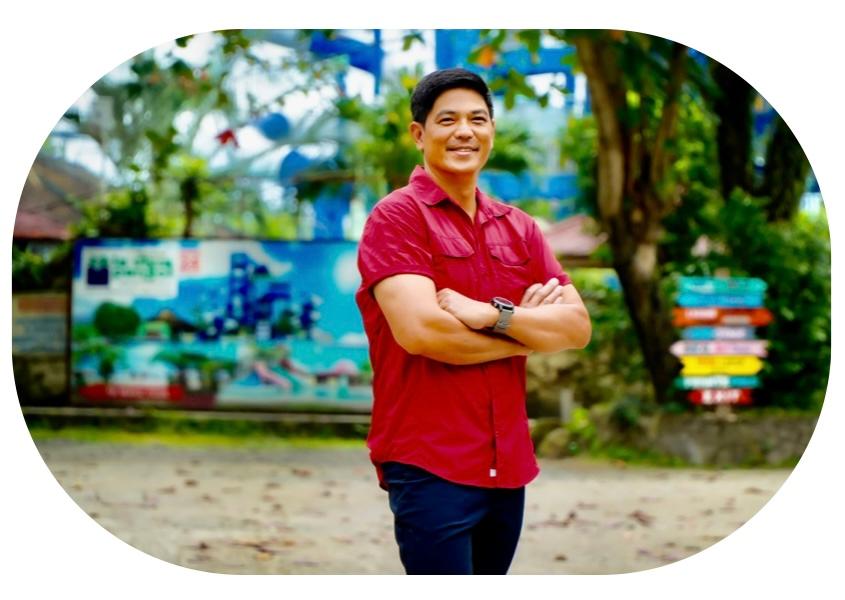
Dr. Nielsen Donato in his wildlife sanctuary in Laguna: “I’m lucky because I get to treat more exotic animals, as well as farm animals, in my clinic and the park.”
What gets you out of bed in the morning? “, asks Dr. Nielsen Donato, a veterinarian, as he strolls through his animal sanctuary.”This doesn’t work. It’s something you’re eager about.
People typically picture veterinarians caring for domestic pets like cats and dogs when they think of them. But Doc Nielsen isn’t your typical veterinarian. He has a specialty in avian and exotic medicine and serves as the managing partner and principal surgeon at Vets In Practice (VIP), a facility that treats pets that aren’t typical.
But what really sets him apart is his unrestrained compassion for practically every form of animal, whether it is slithering, flying, galloping, or crawling.
From the age of three, Doc Nielsen developed his enthusiasm. His excitement about going to church to see the yellow chicks and ducklings being sold by vendors outside is one of his favorite childhood memories.
Nowadays, Doc Nielsen assists in managing the Laguna Wildlife Park & Rescue Center, which is located on the Pansol property owned by his family. This nonprofit organization is home to about 100 different types of farm animals and wildlife, including domestic pets that have been abused and exotic species that have been rescued from dangerous conditions and illegal trade. He takes care of the wildlife park with the assistance of his crew, which includes everything from chickens and goats to monkeys and a serval cat. The Department of Environment and Natural Resources (DENR), which aids in obtaining and bringing animals to the park, also supports it.
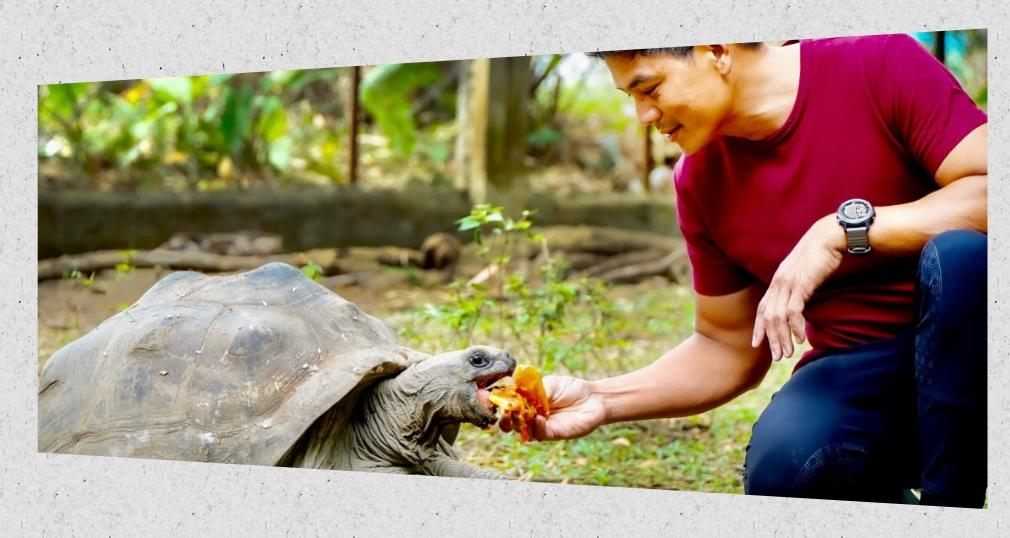
Feeding time: Violet, a rescued tortoise, snacks on papaya.
The veterinarian calls the park his “happy place,” which he visits as early as 5 am to see all of the animals and listen to the different sounds that envelope the whole park. “When I’m walking here in the morning or afternoon, it relaxes me. Nalilimutan ko yung mga stress, that’s why I call it my ‘haven,’” says Doc Nielsen.
Compassion project
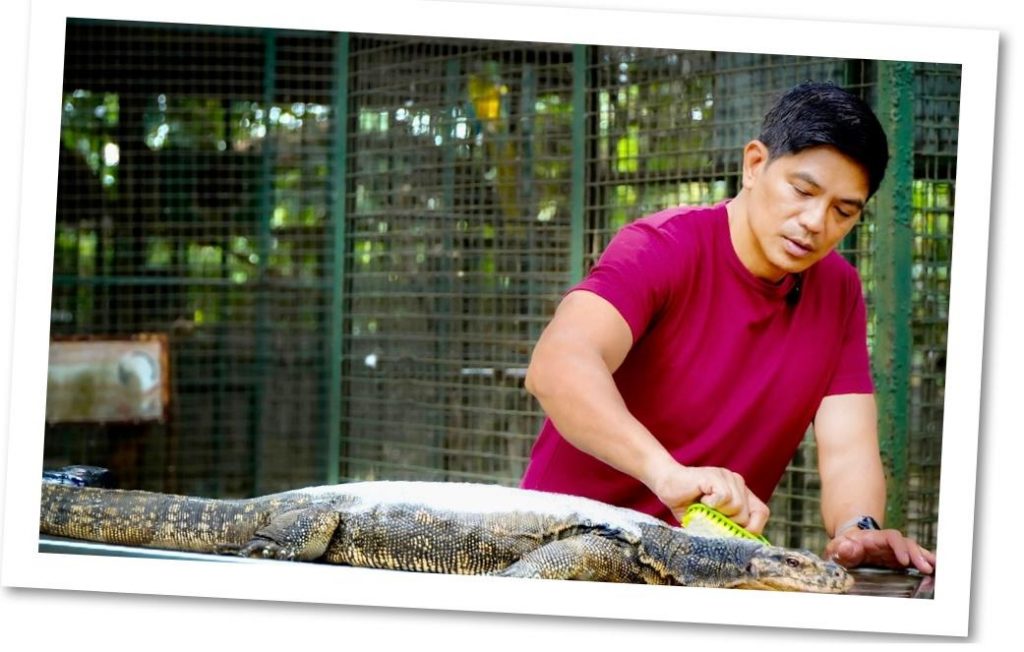
Doc Nielsen demonstrates how to bathe a Bayawak, with his resident monitor lizard, Bruce.
“We support the animals with our own resources,” Doc Nielsen says as he shows the many enclosures in the park that the animals call home. He also provides them with nutritious food and medicine to keep them healthy while they’re living in the park.
He doesn’t do this alone. Apart from the staff he works with, Doc Nielsen’s family also helps. His kids, Cedric and Nina, are studying veterinary medicine, so they’re well on their way to following in their dad’s footsteps.
Giving animals a second chance
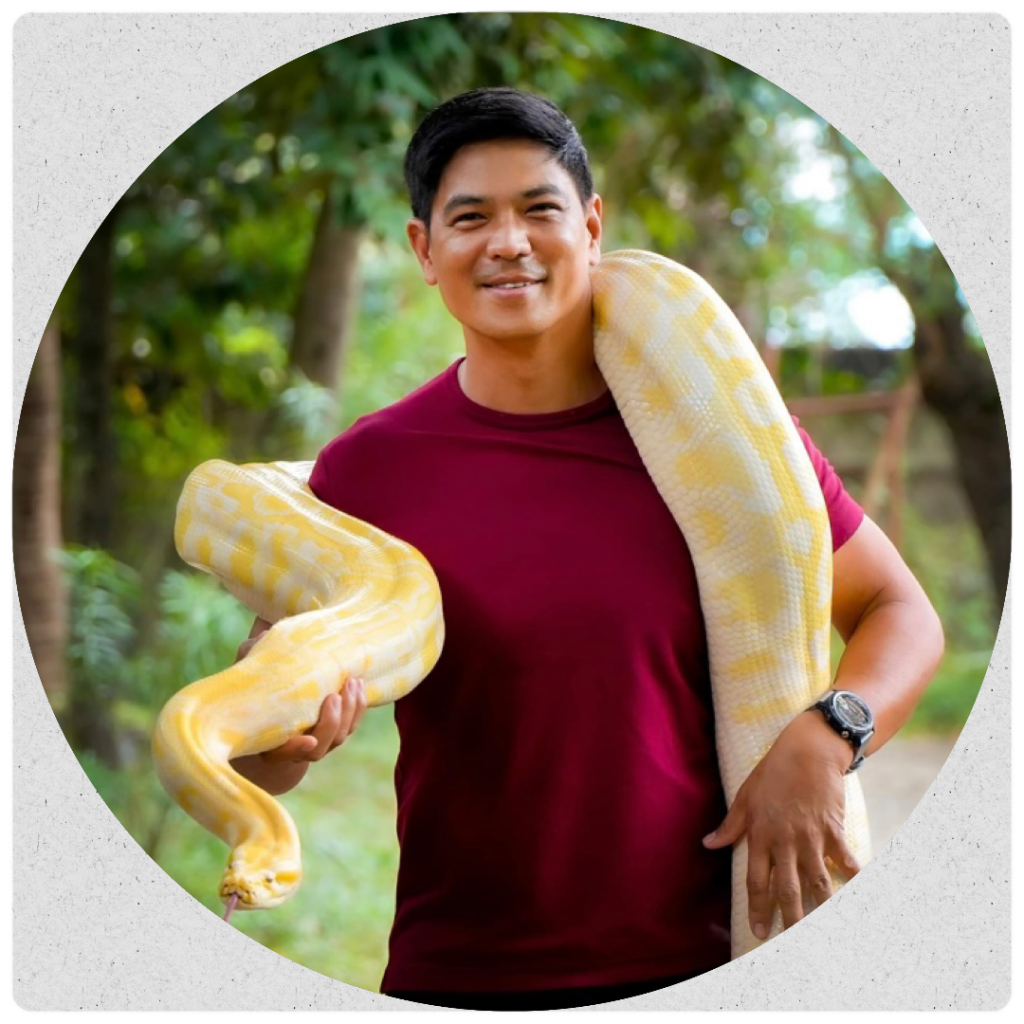
Zuma the Albino Burmese python and Doc Nielsen pose for the camera.
While giving a tour of the park, Doc Nielsen stops to feed and pet the animals he passes by. One of them is a bearcat (binturong), a nocturnal mammal with cat-like features that’s endemic to Palawan. Doc Nielsen explains that the bearcats were transported to the park with the help of DENR, and they are raised until they’re ready to be released back into the wild.
“I promised that if I ever breed any endemic wildlife animal in the park, my goal is to help repopulate their species and bring them back to their natural habitat,” he says. He also takes time to assess animals who might need medical attention and treat them right away to prevent infections.

Best Friends Forever: Doc Nielsen and Kulit.
It’s not always easy for Doc Nielsen to let go of animals, especially those that have been used to being around humans. Many of the monkeys, for example, lived in crowded areas and were treated as pets in their past lives. Releasing them back into the wild would be a safety risk for them because a troop of wild monkeys might hurt them.
This is why he and his staff ensure that animals like these get the care they need so they can live a long and healthy life. The wildlife sanctuary is their safe haven until they are ready to be released in a protected space.
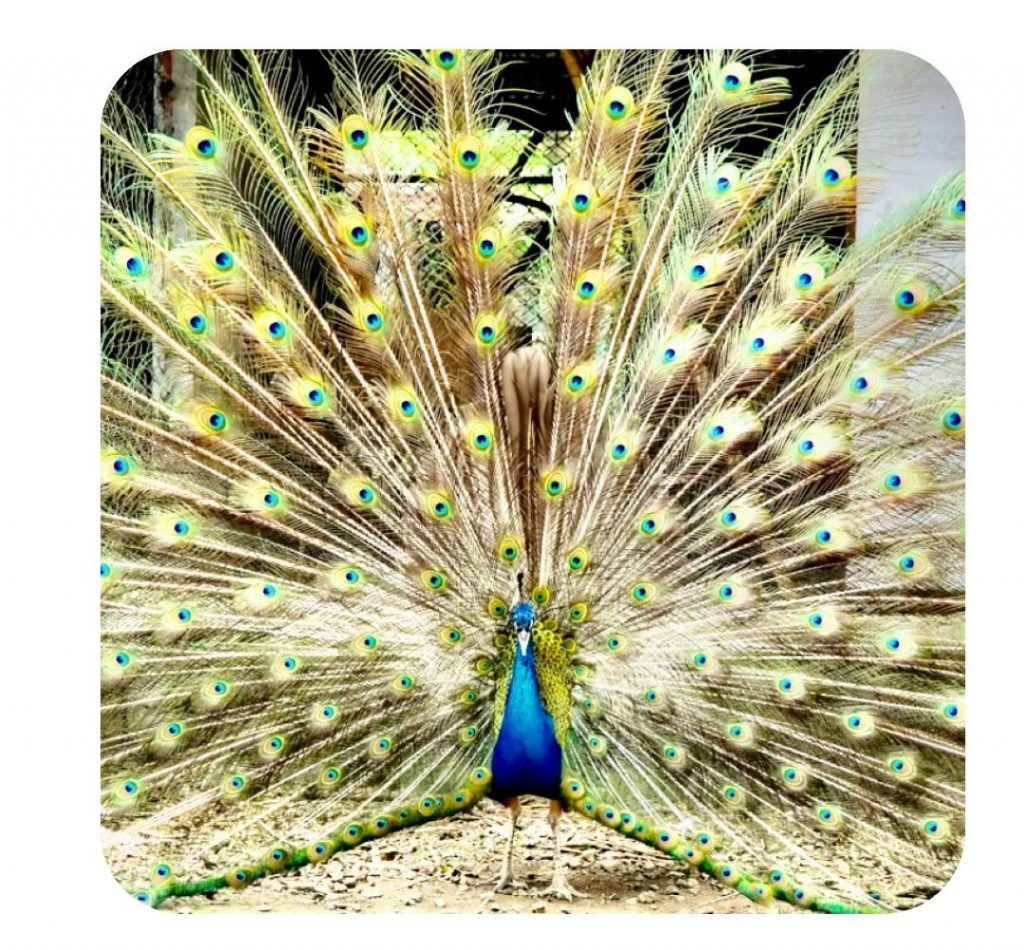
On full display: Drake the Peacock struts around his pen.
Whether it’s at his clinic in the city or the wildlife park in Laguna, Doc Nielsen is always ready to offer his expertise and care to all types of species, no matter how scary they may seem.
“I always dreamed of being someone like [British veterinary surgeon] James Harriot. I’ve always wanted to treat dogs and cats, and farm animals as big as horses, goats, and sheep,” he said. “There weren’t exotic animals to treat yet [when I was just starting out.] Now, I’m lucky because I get to treat more exotic animals, as well as farm animals, in my clinic and the park.”

No Comments